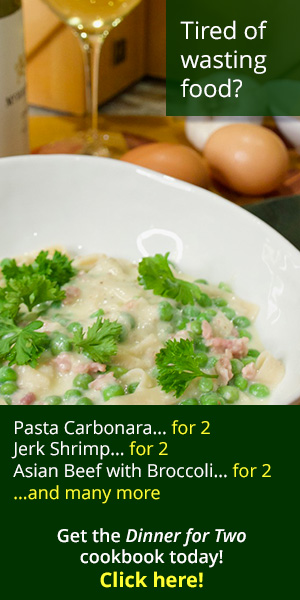
Which oils and fats should I keep in my pantry?
For years you have probably been told to eat a low fat diet or to not eat too much saturated fat. This is a great example of how science and our knowledge evolves. We now know that low fat diets are not healthier and are likely bad for you. There remains some controversy over whether a diet high in saturated fat is as bad for you as we once thought. While it does appear that too much saturated fat, especially from animal sources, is an issue, over the last five years we have come to realize more and more that it is the quality of the fat that is key.
Saturation refers to the amount of hydrogen atoms that hang off of a fat molecule. More hydrogen atoms and the fat is "stickier," so saturated fats are more solid at room temperature. As a rule of thumb, animal fats like butter and lard are more saturated than fats that come from vegetable sources. There are some vegetable oils that are naturally more saturated, like coconut oil, and some oils are artificially saturated by adding hydrogen atoms. That process is known as hydrogenation and is how margarines and vegetable shortening are made. This is clearly a problem: too many hydrogenated fats in the processed foods on the market contribute significantly to the risk of diabetes and heart disease.
The most important fact to remember is that all oils and fats contain calories. For the most part, a measured teaspoon of any fat will have in the neighborhood of 35 to 50 calories. The difference between butter and olive oil will be the proportions of these fats - saturated vs. unsaturated - between the two. Butter is about 65% saturated fat, while olive oil is about 85% monounsaturated fat.
Monounsaturated fats have been linked with lower rates of heart disease, stroke, and some cancers. Good examples of monounsaturated oils are vegetable oils like olive oil, canola oil, and grapeseed oil. Note that these three come from seeds. Both seeds and nuts are mostly made up of fats and you should think of them as fats even though they may also contain protein, fiber and carbohydrates. Like the oils that come from them, nuts are generally high in monounsaturated fats. Even though they're good fats, it's important to keep in mind that they contain a lot of calories.
There are some ingredients like avocados, eggs, and dairy products that most of us don't consider to be fats. Like seeds and nuts, avocados have the good types of fat (with a bonus of a lot of fiber).
One of the most common fats that many of us use is mayonnaise. There are a number of good quality reduced-fat products on the market. In our recipes we specify which should be used, based simply on which tastes best. Most salad dressings, for instance, will work fine with reduced-fat mayo.
Avocado makes a great replacement for mayonnaise. It works terrific as a spread for sandwiches but also in recipes like tuna salad or egg salad (just be sure to add a bit of acid like lemon juice to keep the avocado from oxidizing and turning brown).
The following fats and oils are good to keep on hand. Purchase smaller amounts because oils and fats tend to go bad quicker than you think.
1. Extra Virgin Olive Oil: Use EVOO for making your salad dressings and at the end of a recipe to finish a sauce. It is better to not cook with extra virgin olive oil because the temperature at which it burns (the smoke point) is comparatively low because of the particulate matter in the oil. Those olive oil solids that are part of the first pressing reduce the smoke point but they are also the source of a lot of the great antioxidants in the oil.
2. Olive Oil: Use second pressing to cook with. It doesn't contain the particulate matter but is still full of flavor and with a higher smoke point - better for cooking.
3. Canola Oil: Canola oil is made from the refined oil from the rape seed. It is very high in monounsaturated fat, has a high smoke point and is mostly flavorless so a good choice for baking or those recipes where you don't want the taste of the oil to affect the final recipe.
4. Sesame Oil: Keep sesame oil on hand for Asian dishes. You can use the dark or toasted sesame oil for a more intense flavor. Because you might not use it as often, it is good to keep it in the fridge.
5. Unsalted Butter: Keep unsalted butter on hand for a number of reasons mostly to use it at the end of a recipe to enhance the flavor and texture. All it takes is a teaspoon or so at the end of a sauce to make a huge difference - a little bit goes a very long way.
Fat is a critical part of a healthy and a delicious life. The Mediterranean diet literature tells us that about 35% to 38% of our calories should be from fat, and keeping your focus mostly on vegetable sources of fat and less on animal sources is the key to great food that just happens to be great for you.
Eating Healthy: the Basics
The How and Why of healthy eating. Everything from why you should eat breakfast to whether red meat or coffee is bad or good for you, all in straightforward terms.



